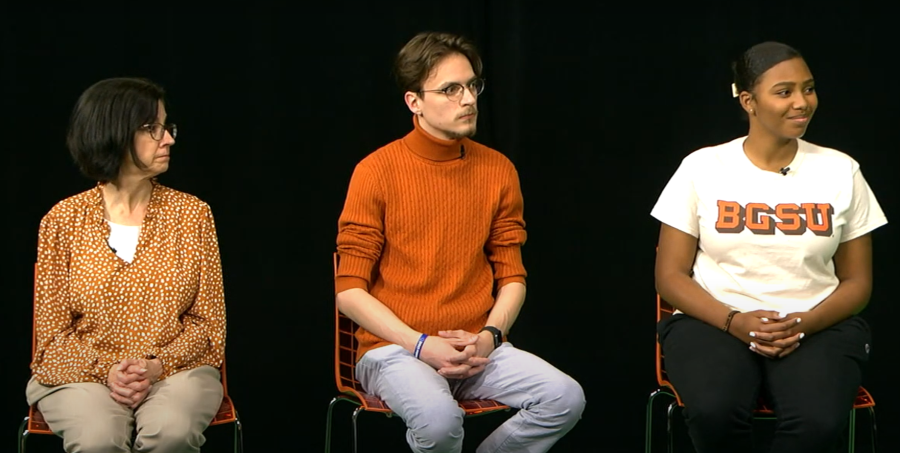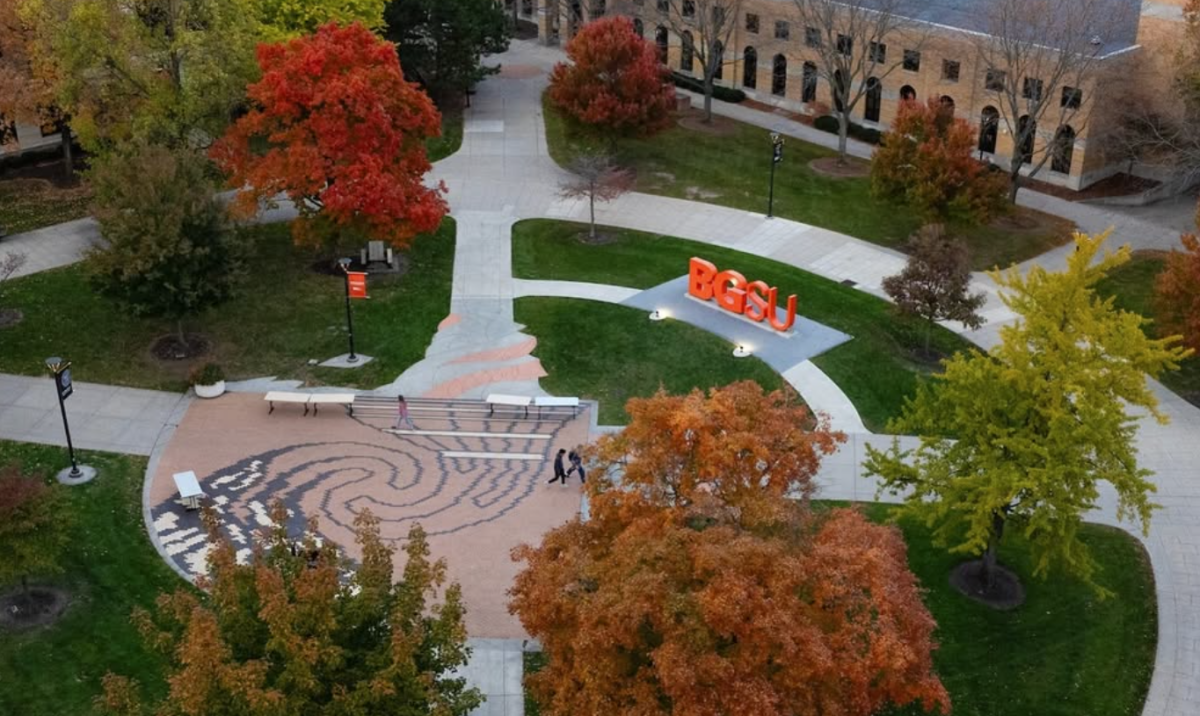Undergraduate participation in student organizations on campus has been decreasing, creating a problem for groups on campus.
Representatives of the Undergraduate Student Government sat down at an open forum moderated by Andrew Bailey, BG News Editor-in-Chief, to discuss this growing problem.
Every fall semester, organizations fill the campus green with tables, hoping to encourage participation in their groups by advertising to the incoming student body. The representatives were asked how to continue outreach after that event ends.
Alexander Chiarelott, President of USG, said the Student Organization Allocation Board was one way to reach out to individuals around campus.
“If a student organization wants to set up an event on campus, that can help with recruiting or promoting or just trying to get people out to come to do something specific for their organization,” Chiarelott said.
Chloe Cox, USG’s Director of Minority Coalition, added the idea of working with other groups to make connections with others and to not be afraid to “bring two worlds together,” Cox said.
“I think it’s just trying to be as open as possible for all of the new students that come in,” Chiarelott said.
Jodi Webb, USG’s faculty advisor, explained further that the connections a student makes to a group determine whether they will be involved in the organization or not.
Another question addressed approachability, as it is often a highly valued characteristic of leaders in organizations. But can someone learn how to be approachable?
“I want to have those different perspectives and I think really just coming into it with a mentality can help set up people for kind of being a little bit more open and approachable,” Chiarelott said.
When COVID-19 began, organizations were forced to hold their meetings via Zoom. The USG representatives were asked if this might have had an effect on participation.
While Chiarelott was quick to explain how Zoom diminishes the possibility of creating connections, Webb went on to explain how the transition to in-person meetings was very much needed.
Webb explained that while in Zoom calls it is easy to disengage, so when USG came back to in-person meetings the group had to relearn.
Chiarelott went on to explain how keeping the meeting fun and having that mentality adds to the engagement of the organization.
“We’re here to learn but we’re (also) here to have fun and get experience so I think trying to come away from that mentality of we have to be professional 24/7, obviously remain respectful, but try to add some elements of fun into it as well,” said Chiarelott.
Diversity among members in an organization is a concept many look for when choosing which group to join.
Chiarelott said that “individuals in my position, who share a lot of these same identities, need to recognize that we don’t really know anything and we really need to bring in really strong leaders from all backgrounds in all areas of campus.”
Cox added that “when you’re genuine and intentional with what you want to impact, I think that that shows through in what you do.”
Social justice can be learned all around campus, but how do groups take those lessons and turn them into action?
Cox was quick to answer this question, explaining that the BGSU environment provides a lot of different ways to be involved with different aspects of campus.
“A lot of different organizations, on and off-campus, are very open to collaborating with students. There are (also) a lot of faculty members that are very open to leading students and student organizations,” said Cox.
Often accomplishments of small groups are overlooked because of their lack of a social media following; however, this can be fixed with the right leadership.
Chiarelott said, “There’s a lot going on in everybody’s life so really just making sure you’re kind of being a leader but being able to delegate as well and work well with others and just finding that passionate person that you can really get the ball rolling with.”
Media is another way to get an organization’s message around campus. But Chiarelott mentioned that when trying to promote an accomplishment make sure not to invade someone’s privacy.
Chiarelott said, “you want to make sure you’re kind of protecting everyone’s privacy.”
Organizations are created to serve the students of BGSU, creating a place where an individual can connect and make friends through similar interests.
Cox said, “they can create a safe space where students can be themselves and be around people that might enjoy similar things that might have similar beliefs or values or goals. It can be a safe space.”
A safe space is explained by Chiarelott as “really really powerful and something that definitely shouldn’t be understated” by an organization.
Chiarelott reflected back on his own experience within USG and how having the connections brought about by being involved has helped shape his future.
“It’s also a connection to the university that students feel they have a place in addition to their academic program,” said Webb.
Chiarelott ended the open forum by touching again on the importance of having fun within an organization and being able to recognize just how important student organizations are to the campus.
“You don’t have to stress all the time about trying to make everything super professional, a lot of the organizations are just about building social connections,” said Chiarelott. “I think it’s really important to just recognize the importance of student organizations as a whole.”
Starting Monday, March 28, USG candidates for the upcoming election can start campaigning. While voting for the election starts on Thursday, March 31.
All of the information pertaining to the candidates running can be found on the BGSU USG website.














